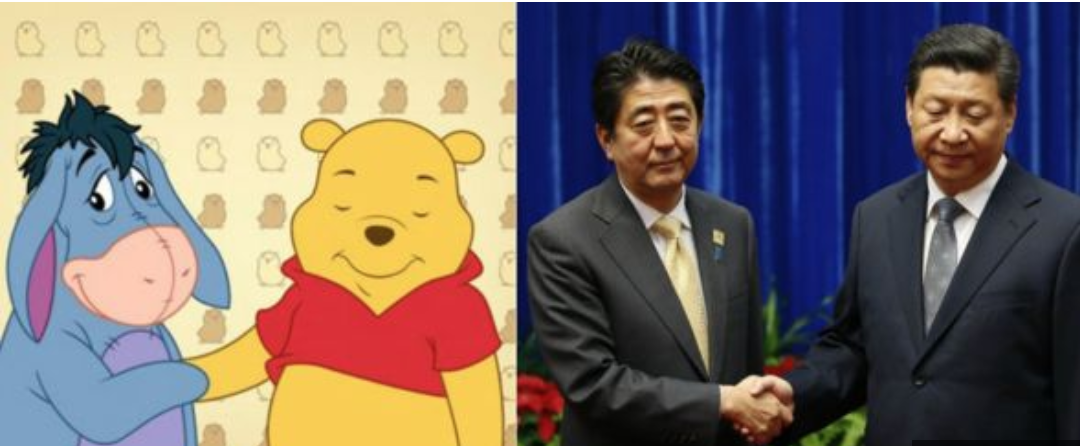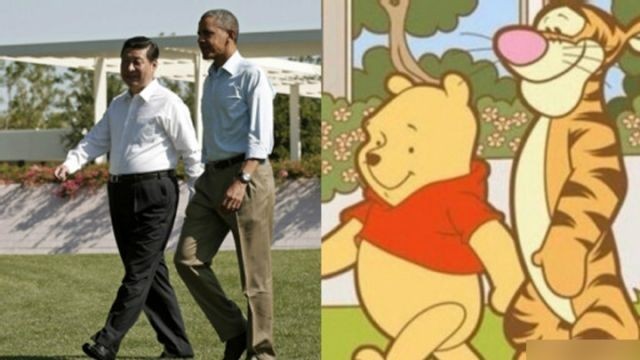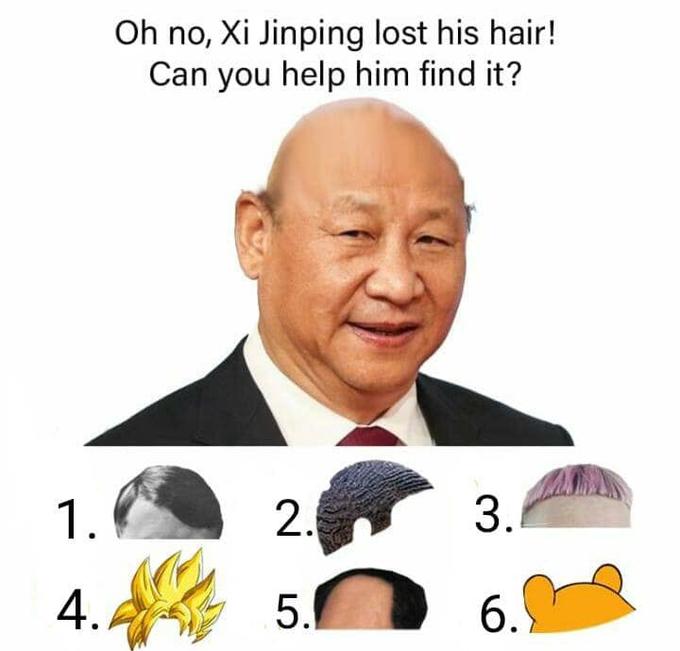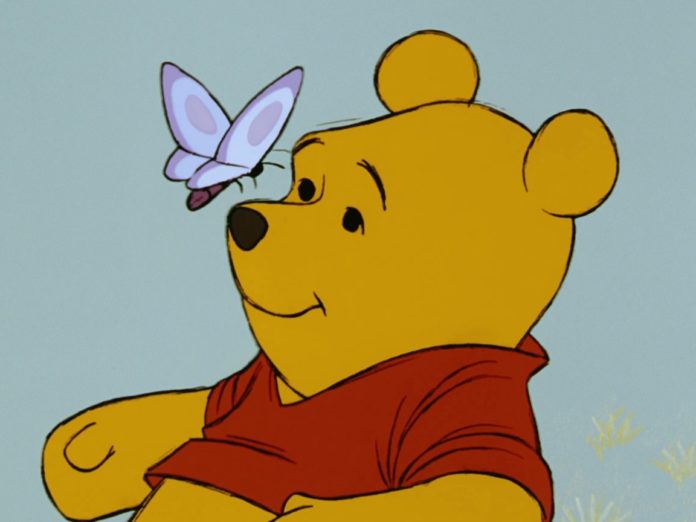Winnie the Pooh is banned in China by the ruling Communist Party (CCP) because of the animated bear’s shocking resemblance to the country’s leader, Xi Jinping.
Chinese social media users are not allowed to discuss or circulate images of the chubby flat faced bear for fear that the Pooh’s likeness may be used to mock Xi, according to the BBC. Despite this, several notable examples of memes highlighting Xi’s visual similarity to Pooh have been widely circulated on Chinese platforms. American users have also begun to propagate the joke.
After Xi shook hands with Japanese Prime Minister Shinzo Abe, users of the Chinese social media site Weibo were quick to track down and post a visually similar photo of Eeyore and Pooh shaking hands.

A meeting between Xi and President Barack Obama also drew mockery from Weibo users. (RELATED: Zoom Teleconferencing App ‘Mistakenly’ Exposed Data To China)

While the CCP no longer allows Chinese citizens living beneath the country’s stringent internet regulations to post Xi-Pooh comparisons, this cannot stop Western social media users from making their own memes. Posts from non-Chinese citizens seem to take a more irreverent, disrespectful tone.
Users of Know Your Meme, a US-based online forum for discussion of internet culture have uploaded hundreds of posts mocking Xi’s resemblance to Pooh. One such image asks viewers to select the correct hairdo for the Chinese leader. Options include hair that looks like his own, that of Adolf Hitler and the ears of Winnie the Pooh— strongly suggesting that the latter is the correct choice.

Another post describes how Xi is portrayed by media outlets in different countries using various renditions of Pooh’s character.

In addition to disliking the visual comparison between Pooh and Xi, the CCP may also be upset about what the animated bear represents. Pooh’s fictional neighborhood, The 100 Acre Wood, has long been studied by psychologists who believe that each character was created by author A. A. Milne to represent a different mental illness.
Xi’s lookalike bear suffers from “mental retardation” and demonstrates only “borderline intellectual functioning” according to an academic paper listed in the National Institute of Health’s archives.
While the Chinese government’s censorship of internet jokes may propel them to viral fame in the West, the CCP’s regulation of the internet has dire consequences for those living under it.
Liu Xiaobo was an outspoken critic of Chinese human rights abuses and recipient of the Nobel Peace Prize who passed away in 2017, according to Human Rights Watch. Despite his global acclaim, most Chinese citizens have never heard his name thanks to its successful eradication online.
WeChat, China’s most popular messaging app, won’t even transmit messages containing Liu’s name, reports BBC.

















